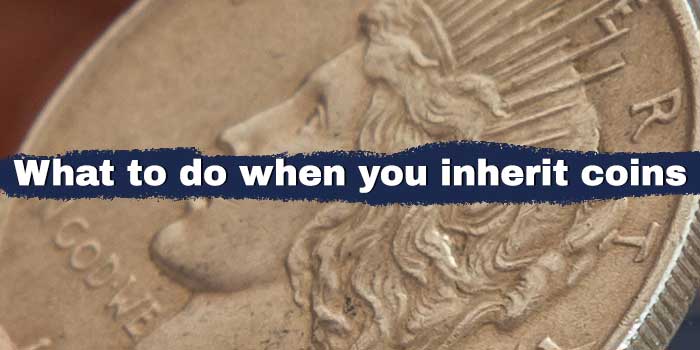
Online resources can help you find someone you can trust
By Jeff Garrett for Numismatic Guaranty Corporation (NGC) ……
When the public brings in coins for appraisal, they have usually done some research. But working with these folks also reminds me how little the general population knows about the world of rare coin grading.
The temptation for someone who knows little or nothing about grading is to scan to the right on the price charts to determine a coin’s value. They find it hard to believe that their lustrous Morgan silver dollar is not an MS 66 or better and worth thousands. I would probably be the same way if I inherited an attractive piece of jewelry and was dealing with a diamond dealer. Like appraising diamonds, the nuances of coin grading are hard to explain to a beginner.
Many people inherit coins saved from circulation or brought home from trips abroad. It is also quite common to see large groups of Proof and Mint sets that have been purchased over the years. For these types of collections, most local coins shops will be fine to sell them.
For someone trying to sell an inherited coin or collection, it is important to find someone you trust for advice. This should include having the right credentials for the material you are selling.
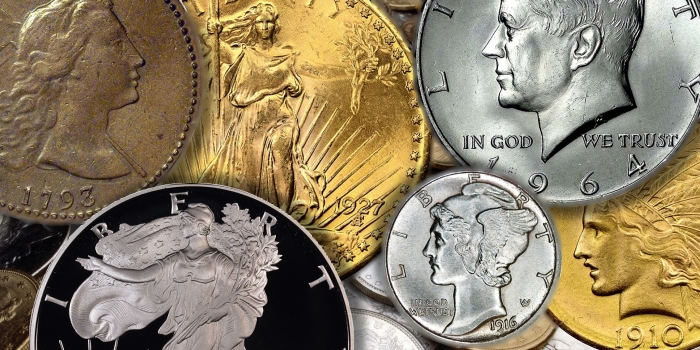 Often, this type of collection can involve a large number of coins that are difficult to drag around town while soliciting multiple offers. As a buyer, I can also tell you that no one wants to spend hours working on a collection and then not end up purchasing it.
Often, this type of collection can involve a large number of coins that are difficult to drag around town while soliciting multiple offers. As a buyer, I can also tell you that no one wants to spend hours working on a collection and then not end up purchasing it.
In such situations, I tell people to bring in a small group of the coins they think might be the most valuable. I highly recommend you get multiple offers on the sample group. This will probably give you enough information to know who you should deal with.
The Effects of Precious Metal Prices
If large amounts of gold or silver are involved, then you should remember that most offers are contingent on precious metal prices being the same when the sale actually occurs. Have the dealer clearly state the bullion prices on which the offer is based. This will save disappointment or hard feelings if prices were to fall sharply. On the other hand, if gold and silver rise, you should expect more.
This advice is for basic accumulations of coins and not true collections. If the person you have inherited coins from was a serious collector, you should take the same care with its disposal as the collector did assembling it.
Resources for Finding Dealers
Again, the basic advice is to find someone you can trust to help you. Several good resources are available to help find someone in your area. Try the NGC dealer list or, perhaps better yet, find a dealer who is also a member of the American Numismatic Association (ANA) and the Professional Numismatist Guild (PNG). You may want to narrow your search to one of the dealers who specializes in the collection or series you have inherited. This might require sending your coins in the mail, so it might be better to contact someone locally to start with.
Get a General Idea About Your Holdings
The first thing to do is to get a general idea of your holdings. Sets of recent vintage coins in Whitman folders are not the same as an assortment of United States gold coins.
Show the coins to at least two or three companies before deciding how to proceed. Do not be surprised if the offers vary considerably. Some companies operate on different profit margins and the expertise of the dealers can also vary greatly.
Those who inherit a coin collection also should avoid excess fees that can be charged by attorneys and certified appraisers. In most cases, neither of these can be trusted for expert advice on the value of rare coins. They also are very expensive, and you probably can do just as well by receiving multiple offers from reputable rare coins dealers. There may be exceptions if the estate is complicated and multiple heirs are involved.
In rare instances, I have been asked by heirs to appraise collections that will not be sold. We have even been asked on several occasions to split the collection into equal parts so each heir receives their fair share. Some wish to sell, while others might want to retain parts of the collection for sentimental or investment reasons.
Grading Coins
As most of you know, having your coins graded will probably result in your getting the most money for your coins. This is, however, a tricky process for someone who is not a knowledgeable collector.
It is crucial to have your coins screened to determine the best candidates to submit for grading. Most dealers can help you decide which coins are worth the grading fees, shipping and handling by, among other things, helping you avoid sending in coins with problems that would result in unsatisfactory results.
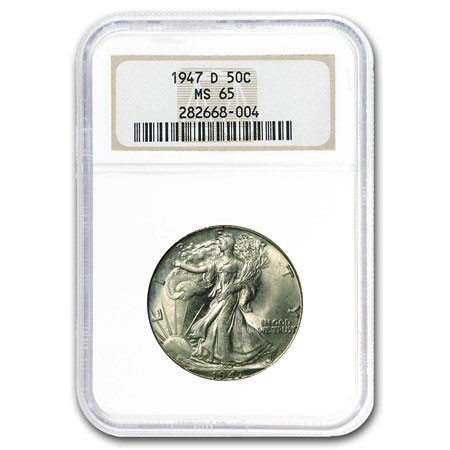 Once your important coins have been certified, you can use the internet to do basic research that will be much more meaningful. The NGC price guide will give you a good idea of retail values, and most auction houses also offer past auction results for comparison. You can also probably find multiple examples of the same coin being offered on eBay at any given time.
Once your important coins have been certified, you can use the internet to do basic research that will be much more meaningful. The NGC price guide will give you a good idea of retail values, and most auction houses also offer past auction results for comparison. You can also probably find multiple examples of the same coin being offered on eBay at any given time.
Another good idea is to locate a specialist in the series you have for sale. This can be done without too much trouble using the search features of the ANA and PNG.
The Auction Option
Another venue for liquidation of your collection would be an auction.
Most auction houses now require coins to be certified to be listed individually in their sales. They can help with this process as well. There are many pros and cons to selling at auction. Your coins will be offered to a wide audience, but the auction houses charge a fee for this privilege, usually 15 to 25% net. It should also be remembered that auction fees are negotiable and I strongly advise getting multiple proposals.
You also have the uncertainty of the market when waiting several months for a sale to take place, not to mention waiting months to receive the proceeds. Most important collections in the last several years have been sold at auction. For smaller collections, you need to compare the options I’ve listed to determine the best course of action.
Whether you have inherited your grandfather’s coins he brought home from World War II or a complete set of Stellas, the overriding advice is to be patient when liquidating your holdings. Most of the ideas I’ve given only scratch the surface of this complex situation.
Look for good advisers and do your homework.
Join the Numismatists
You may also want to consider the opportunity to become a collector yourself, and having a collection given to you can be an amazing head start. Some of the greatest collections ever assembled were multi‐generation endeavors. These include Garrett (no relation, unfortunately) in the late 1800s and the Pogue family more recently. It would be even better if the person who is leaving you the coins were still around to give you advice and encouragement.
Inheriting Hummel figurines might not inspire you to begin collecting them, but if given a chance you might become hooked on the excitement of numismatics!
Jeff Garrett bio




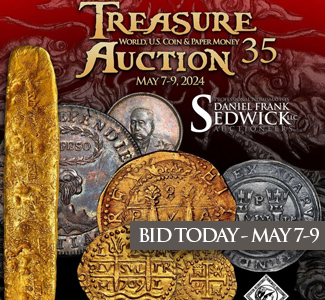
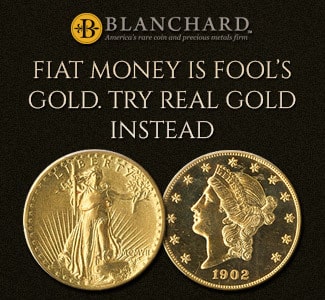
You never want to sell them. To pawn shops the will rob you
I have a $50 GOLD CANADIAN MAPLE dated 2015. I was told that it was a fake because the number engraved in the security leaf is s 16 not a 15. Is that true?
I have a 1944 zinc wheat penny I want to sell
I inherited coins wanted to know how to get them valued. Does anyone know where I would start